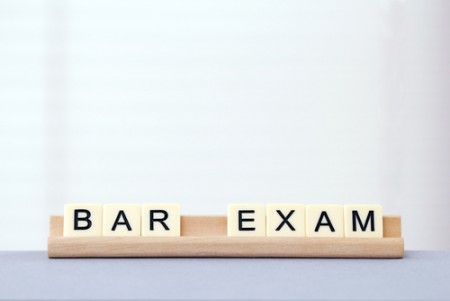California bar board of trustees sends state supreme court 3 options for bar exam cut score

Rather than suggest to the California Supreme Court that it should or shouldn’t lower its bar exam cut score, which is currently 1440, the State Bar of California's Board of Trustees voted Wednesday in favor of providing the court with three possibilities--keep the score where it is, lower the score to 1414 or lower it to 1390.
The vote was 6-5, according to a tweet from Daily Journal staff writer Lyle Moran.
Traditionally, the cut score is set by the state’s bar exam committee, but in July the California Supreme Court amended the rule, asserting its own authority to determine the score. The Committee of Bar Examiners in August suggested to the court that the cut score should remain at 1440. However the state bar’s Law School Council endorsed lowering the cut score to something between 1350 and 1390. Additionally, the Association of California Accredited Law Schools, a group whose members are law schools with state accreditation, not ABA accreditation, sent a letter (PDF) to California bar leadership Sept. 1, asking that the cut score be lowered to 139.
Speakers commenting Wednesday in favor of lowering the cut score asserted that the bar exam is designed to measure if candidates are competent to practice law, and there’s no relation between a high cut score and fewer attorney discipline findings. Those speaking in favor of lowering the cut score included the deans of Concord School of Law and Golden Gate School of Law. The law schools’ respective pass rates for the July 2016 California bar exam were 16 percent and 26 percent, respectively, according to a supplemental statistics report (PDF) posted atTaxProf Blog.
Karen Goodman, chair of the state bar’s committee of bar examiners, spoke in favor of leaving the cut score as is, at least until the issue has been studied further. That would include the results of an student performance study.
“Until we understand the reasons, we can’t begin to understand the problem,” said Goodman, a Sacramento attorney.
“The cost of legal education has skyrocketed—that isn’t the bar’s obligation to resolve,” she said, adding that “the public’s erosion of confidence in the profession will not be helped by lowering the cut score.”
Also the state bar commissioned a standards setting study (PDF), released July 31, which offered two suggestions: Set a new interim bar exam cut score at 1414 or maintain the current score of 1440.
And the agency recently released an online survey of 34,295 attorneys. Nearly 80 percent indicated that the cut score should not be lowered while 11.6 percent thought it should be 1414 and 4.2 percent thought the score should be reduced further.
Test takers for the July 2017 California bar were also surveyed. Out of 4,188 responses, only 2.3 percent thought the score should be unchanged while 36.4 percent believed it should be cut to 1414 and 56.7 responded that score should be even lower.
Protecting the public from potentially unqualified attorneys and maintaining the integrity of the profession were the top reasons why attorneys surveyed felt the cut score should remain where it is. For state bar applicants, student loan debt, access to legal services for underserved populations and the recent decline in state bar passage rates were given as the most important reasons to lower the score.
The total pass rate for the 2016 California bar exam was 43.3 percent. If a cut score of 1414 had been in effect, the pass rate would have been 46.8 percent. With a 1390 score, the pass rate would have been 52.1 percent.
The report also details by gender and race how bar passage rates would have spiked if the cut score werelowered.
With a 1414 score, the 2016 bar passage rate for women would increase from 42.5 percent to 46.1 percent. With a 1390 score, the percentage rises to 51.2 percent. For men, the pass rate would rise from 44 percent to 47.4 percent with a 1414 score and 53.1 percent with a 1390 score.
By race, a 1414 cut score would have raised the passage rate by 7.2 percent for whites, 8.7 percent for Asians, 10.6 percent for Latinos and 12.5 percent for African-Americans. With a 1390 cut score, the passage rate increases would have been 17.3 percent for whites, 23.5 for Asians, 26.1 for Latinos and 40.4 percent for African-Americans.
If the California Supreme Court decides to lower the bar exam cut score, it will follow the Oregon and Nevada Supreme Courts, which both lowered their cut scores this summer. The Oregon Supreme Court changed the score from 284 to 276, the Daily Emerald reported, and the Nevada Supreme Court changed its bar exam cut score from 140 to 138, according to the Las Vegas Review Journal.



